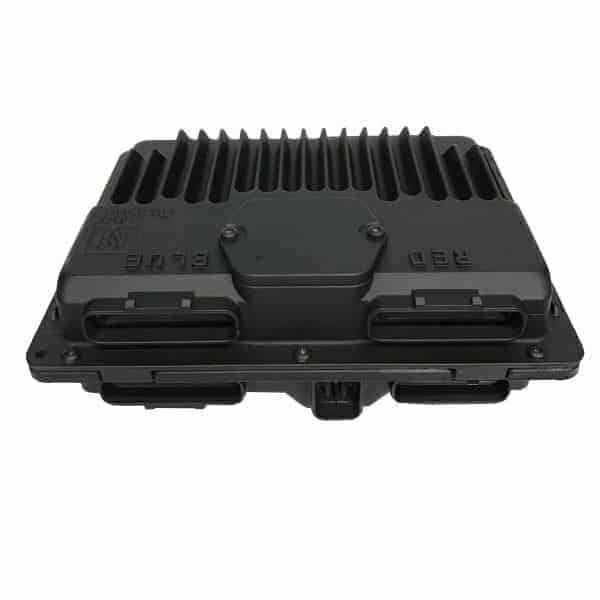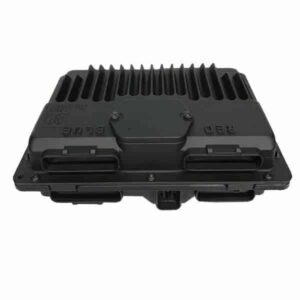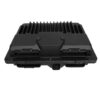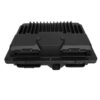Restore Your Truck’s Performance and Reliability
Is your 1998 or 1999 Chevy, GMC, or Cadillac truck suffering from baffling issues like stalling, erratic shifting, a persistent check engine light, or a complete no-start condition? Before you spend another dime chasing down phantom sensor failures, the root cause might be the very brain of your vehicle: the Powertrain Control Module (PCM). As a technician with over two decades of experience, I’ve seen countless GMT400 and early GMT800 platform vehicles sidelined by a failing PCM. This isn’t just a part; it’s the central command center for your engine and transmission.
We offer a dependable and cost-effective solution. This is a thoroughly tested, used OEM PCM that we program specifically for your vehicle using your VIN. This critical step ensures it receives the latest GM software updates, resolving common factory bugs and optimizing performance. By matching it to your VIN, we deliver a module that is ready to integrate with your truck’s specific systems, making installation a much smoother process. This is the smart way to fix your vehicle correctly without the high expense and scheduling hassles of a dealership visit.
A Technician’s Notebook: The Case of the Confused Transmission
A customer brought in his ’99 Suburban 1500 with a 5.7L, complaining of harsh, unpredictable shifting and a check engine light. He had already replaced the vehicle speed sensor and the transmission solenoids himself, but the problem persisted. His scanner showed a generic transmission communication error. After confirming the wiring harness was intact, we suspected the PCM. On these trucks, the PCM controls both the engine and transmission. We swapped in a VIN-programmed module like this one, and the truck immediately started shifting perfectly. The original PCM’s internal logic for the transmission had failed, a common issue I’ve diagnosed dozens of times. It’s a reminder that what seems like a transmission problem can often be a PCM issue.
Is Your Truck Showing These Signs of PCM Failure?
A failing PCM can cause a wide range of symptoms that are often misdiagnosed. If you’re experiencing any of the following, your PCM could be the culprit:
- ✔ Check Engine Light is on with communication-related codes (e.g., U-codes) or internal processor fault codes like P0601 or P0606.
- ✔ The engine cranks but refuses to start.
- ✔ Rough or inconsistent idling and stalling.
- ✔ Noticeable decrease in fuel economy.
- ✔ Harsh or erratic automatic transmission shifting.
- ✔ Failure to pass an emissions test.
- ✔ The cooling fans run constantly or not at all.
A Straightforward Guide to Installation
Replacing the PCM on these GM trucks is a manageable job for a DIYer with basic tools. Our VIN programming service makes it even simpler by eliminating the need for a dealer-level scan tool for setup.
- Safety First: Always disconnect the negative terminal from your vehicle’s battery and secure it away from the post to prevent accidental contact.
- Locate the PCM: On most of these trucks and vans, the PCM is located in the engine compartment, typically on the driver’s side inner fender or near the battery.
- Disconnect the Connectors: Carefully unlatch and remove the electrical wiring harness connectors from the old PCM. The levers can be stiff, so apply steady pressure. Inspect connectors for any corrosion or damage.
- Remove the Old Module: Unbolt the PCM from its mounting bracket. It’s usually held in by a few small bolts.
- Install the New Module: Mount your new, pre-programmed PCM onto the bracket and securely fasten the bolts.
- Reconnect Everything: Firmly plug the wiring harness connectors into the new PCM until they click and the latches are fully engaged. Reconnect the negative battery terminal.
- Perform Security Relearn (If Necessary): In some cases, you may need to perform a simple security relearn procedure. This typically involves turning the key to the ‘ON’ position for 10-15 minutes. Consult a service manual for your specific vehicle’s procedure.
Verified Vehicle Compatibility
This module, identified by service number 09355699, is a direct replacement for several other part numbers including 16266645, 16250279, 16258815, and 09366810. It fits a wide array of 1998-1999 GM vehicles. Please match your part number or contact us with your VIN to confirm fitment. Key models include:
- ✔ 1998-1999 Chevrolet & GMC 1500/2500/3500 Pickups (Gasoline)
- ✔ 1998-1999 Chevrolet Tahoe & GMC Yukon (Gasoline)
- ✔ 1998-1999 Chevrolet & GMC Suburban (Gasoline)
- ✔ 1999 Cadillac Escalade
- ✔ 1998-1999 Chevrolet Express & GMC Savana Vans (Gasoline)
- ✔ 1998 Chevrolet Astro & GMC Safari
- ✔ 1998 S10/S15/Sonoma, Blazer/Jimmy, Bravada, Envoy, Isuzu Hombre (4.3L V6 models)
Frequently Asked Questions
Why do I need to provide my Vehicle Identification Number (VIN)?
Your VIN is essential. We use it to load the exact, correct GM-certified software and calibrations for your truck’s engine, transmission, and options. This ensures the module works perfectly right out of the box.
Is this a plug-and-play part?
Because we pre-program it to your VIN, it is as close to plug-and-play as possible. In some instances, a simple 10-15 minute security relearn procedure (also known as a CASE relearn) may be required, which does not need special tools.
What is the difference between an ECM and a PCM?
ECM stands for Engine Control Module, while PCM stands for Powertrain Control Module. For these specific GM vehicles, the module controls both the engine and the automatic transmission, so it is correctly called a PCM.
How do I find my original part number?
The part number (or Service Number) is printed on a sticker on the case of your existing PCM. It will typically be an 8-digit number like 09355699.
Will this fix my check engine light?
If the check engine light is caused by an internal failure of the PCM itself (like codes P0601-P0606), then yes, this will resolve the issue. It’s crucial to properly diagnose the problem first to ensure the PCM is the faulty component.



